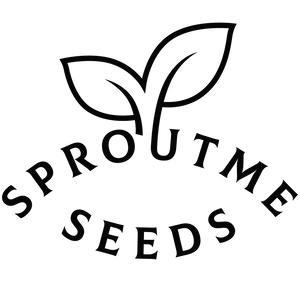Welcome to our FAQ section! Here, you’ll find answers to the most common questions our customers ask, organized by category to help you quickly find the information you need.
From details about our company and seeds to specific tips on gardening practices like hydroponics and organic gardening, we’re here to support you every step of the way.
If you don’t see the answer to your question here, feel free to reach out to us at support@sproutmeseeds.com. Our team is always ready to help!
- All
- About the Company
- About Seeds
- Companion Planting
- Container Gardening
- Hydroponic Gardening
- Organic Gardening
- Seed Starting and Transplanting
- Herb Seeds
- Lettuce Seeds
- Pepper Seeds
- Vegetable Seeds
Need Help?
If you have any questions or need further assistance, don’t hesitate to contact us. You can reach out through our chat or send us an email. Our customer support team is available and will get back to you within 12-36 hours.
We appreciate your patience and look forward to helping you grow your garden successfully!

